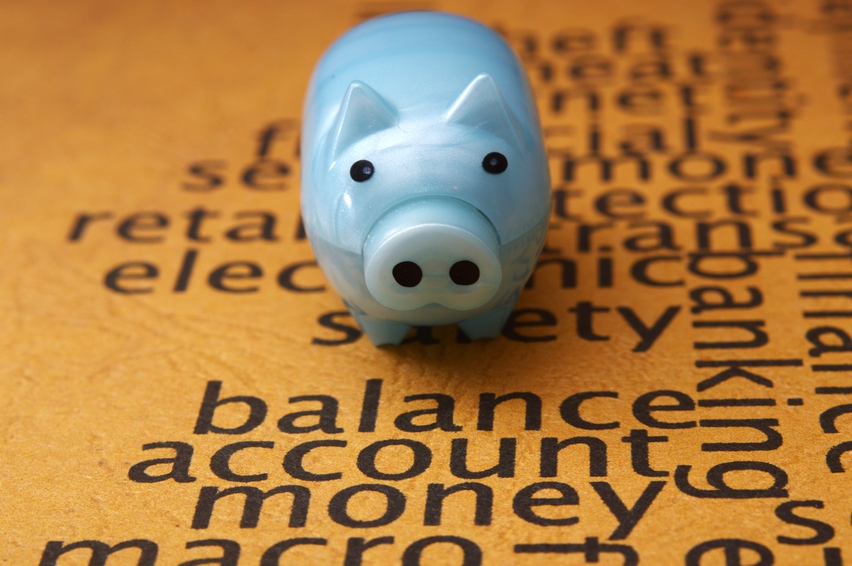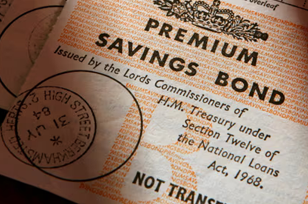Premium Bonds Guide: How much can you make and is it tax free?
National savings and investment bonds are delivered by the NS&I financial institution which is a UK government owned savings bank.
Premium bonds are a savings account with interest earned in the form of a prize which is determined through a monthly prize draw (made on the first working day of each month).
Each £1 premium bond that is entered into the prize draw has an equal chance of winning meaning the more bonds you purchase the greater your chances of winning.
Every month NS&I distributes millions of prizes to bond holders with premium bond winners chosen through a random number generator called ERNIE.
One premium bond is worth £1 but the prize fund interest rate, prize values, odds of winning, and the distribution of prizes may vary over time.
Purchasing premium bonds is definitely worth thinking about if you are looking to invest some money in a savings account.
Do you get taxed on premium bonds interest?
Interest from premium bonds is classed by HMRC as non taxable so any prizes can be treated as free from income tax.
Premium bond income is exempt from capital gains tax as well so you don’t have to worry about declaring and paying tax on any gains.
This makes premium bonds a common consideration for anyone searching for tax free investment income from savings.
Premium bonds and inheritance tax
Premium bonds are included as part of a deceased persons estate so are taken into consideration for inheritance tax (IHT) purposes.
Similar to banks and building societies, national savings and investment also has restrictions on releasing funds from their government backed premium bond investment products without a Grant of Probate.
There is a limit set at £5,000 so if the deceased individual had premium bonds valued at more than £5,000 it may be necessary to go through the probate process.
Do I need to declare premium bonds on a tax return?
Because premium bond interest isn’t categorised as taxable income HMRC doesn’t expect you to include how much you have invested in premium bonds or any prize money on your self assessment tax return.
HMRC only needs you to declare taxable investment income in your self assessment tax return for example dividends from shares.
How much can I invest in premium bonds?
The maximum threshold that any one person can invest in premium bonds is £50,000 with a minimum investment of £25.
Premium bonds can only be held by an individual which means you can’t hold premium bonds jointly.
You are allowed to buy them on behalf of your child, grandchild or a great grandchild. If you aren’t related to a child (under the age of 16) you can buy premium bonds and then nominate the child’s parent/guardian to keep them.
Are premium bonds a good investment?
Like all investments you should find out as much as you can to make sure your choosing the right product for your investment goals.
We’ve detailed below eight important premium bond features to consider:
- Interest is free from both income tax and capital gains tax.
- Premium bonds are a government backed investment product so you should always get back the value of what you put in.
- You have the flexibility to deposit and withdraw funds at your convenience.
- There are no penalties or exit fees for cashing in your bonds.
- You get the chance to be involved in a prize draw every month.
- You don’t get a guaranteed or regular income from savings.
- Prizes are impacted by inflation.
- Interest (or prizes) are based on luck.
Key takeaways:
Premium Bonds do not generate a guaranteed regular interest income like a traditional bank or building society savings account.
Instead they have an annual prize fund rate that finances a monthly draw for tax free premium bond prizes.
The prize fund rate is not fixed and it’s important to keep in mind that inflation can diminish the actual value of your money over time.
The rate is subject to change and can be adjusted either upwards or downwards based on the Bank of England base rate or alterations in the general savings market rates.
What the odds of winning a premium bond prize?
By purchasing £1 bonds each bond has an equal opportunity to win meaning that the more bonds you buy the greater your chances of winning become.
NS&I state that the odds of winning in the monthly prize draw for every £1 Bond are 21,000 to 1 on a variable basis.
How much can I win with premium bonds?
Premium bond prizes are grouped in three tiers by their value with the minimum being worth £25 and the highest £1 million.
The higher and medium value tiers take 10% each of the prize pot and 80% goes to the lower value.
NS&I can change the percentage of prizes allocated in each tier from time to time but not the value of the individual prizes.
How many prizes are drawn in each band varies every month with most winners receiving a prize from the lower value category.
Premium bonds prize values:
Lower value
- £25.
- £50.
- £100.
Medium value
- £500.
- £1000.
Higher value
- £5000.
- £10,000.
- £25,000.
- £50,000.
- £100,000.
- £1million.
Any premium bond winnings can be taken as a cash payment or you can automatically reinvest it by buying more premium bonds.
Premium bonds keep your savings safe
When you purchase premium bonds you are essentially providing a loan to the government and unlike banks with shareholders the UK taxpayer is the largest stakeholder in NS&I.
One significant advantage of saving with NS&I is that they have the exclusive backing of HM Treasury which is unmatched by any other institution and ensures that 100% of your money invested in premium bonds is secure.
Savings with other banks or building societies are typically protected by the Financial Services Compensation Scheme (FSCS) up to the value of £85,000 per person.
How do I purchase premium bonds?
You must be a minimum of 16 years of age to apply for premium bonds with an average account opened within 7-10 days.
For first time premium bond buyers you will need address, date of birth and UK bank account and debit card details.
Online
Purchasing premium bonds online is usually the quickest and easiest way.
Post
You can also download and post your forms to NS&I to the address on the form.
Phone
Call NS&I free on 08085 007 007 during the hours of 8am to 8pm Monday to Friday and 8am to 6pm Saturday and Sunday.
If you already have a premium bond account you can buy more bonds online by using pay by bank account, bank transfer or by debit card.
How are premium bond prizes paid?
After each prize draw you can choose to have your winnings deposited directly into your bank account.
In the event of a win you’ll notified via email or text message and your prize money will be typically transferred to your bank account by the 7th working day of the month.
Another option is to reinvest your winnings by purchasing additional bonds, which can increase your chances of winning again. If you select this option NS&I will automatically reinvest your prize money for you.
Alternatively if you prefer you can choose to receive a cheque by mail which takes longer to process.
Premium bonds prize checker
Discovering if you’ve struck luck in the prize draw is made easy with the NS&I prize checker.
You can use the online prize checker to view the current month’s rewards and any winnings from unclaimed prizes from previous periods.
NS&I have a prize checker app which you can download from both Google Play or the Apple app store.
You can also ask “Alexa” by activating the Premium Bonds prize checker Alexa skill on Amazon. After activating the skill you can verify for any prizes, discover when the next results will be announced, and if you have any unclaimed prizes.
Is my PSA affected by premium bonds?
The personal savings allowance isn’t affected by interest from premium bonds because they are tax free.
Your personal savings allowance (PSA) represents the cumulative sum of interest that you can accrue annually from all your bank accounts (excluding ISAs) without incurring any tax liabilities.
The PSA encompasses the interest you earn from all your accounts held with any bank or building society.
The specific amount of interest that the PSA covers for basic rate taxpayers is up to £1,000 while higher rate taxpayers are eligible for up to £500 of tax free interest.
Options other than premium bonds
Are you in need of a steady stream of income? Are you searching for investments that offer guaranteed returns on your savings?
While premium bond prizes do not attract taxes the personal savings allowance (PSA) allows you to earn up to £1,000 in tax free interest on your savings each year.
It’s worth exploring alternative options that could be used at the same time or instead of premium bonds and could potentially offer a better return on your investment:
High Interest Savings Account: These accounts are generally offered by banks and building societies offer a higher interest rate on your savings.
They usually come with certain conditions such as a minimum deposit requirement or a fixed term during which your funds must remain in the account.
Prize Draw Savings Account: With this type of account, your money can earn interest while also giving you the chance to participate in a monthly prize draw.
Although the cash prizes may be smaller compared to premium bonds, there is still an opportunity to win amounts typically ranging from £10 to £100,000 every month.
Cash ISA: A cash ISA is a savings account that allows you to earn tax free interest on up to £20,000 per tax year.
Easy-access cash ISAs enable you to withdraw your funds as and when needed, and they have a variable interest rate.
On the other hand a fixed-rate cash ISAs may offer a higher interest rate but require you to keep your savings within the ISA for a predetermined period of time.
To make the most out of your yearly £20,000 ISA allowance you can spread your money across multiple asset classes and regions through a combination of cash ISAs and shares ISAs.
Diversifying across different types of assets by drip feeding funds throughout market cycles can mitigate some risks associated with concentration in single sectors or specific geographies.
This type of strategy helps minimise potential losses due to poor timing decisions related to investing activities during unfavourable economic conditions.















